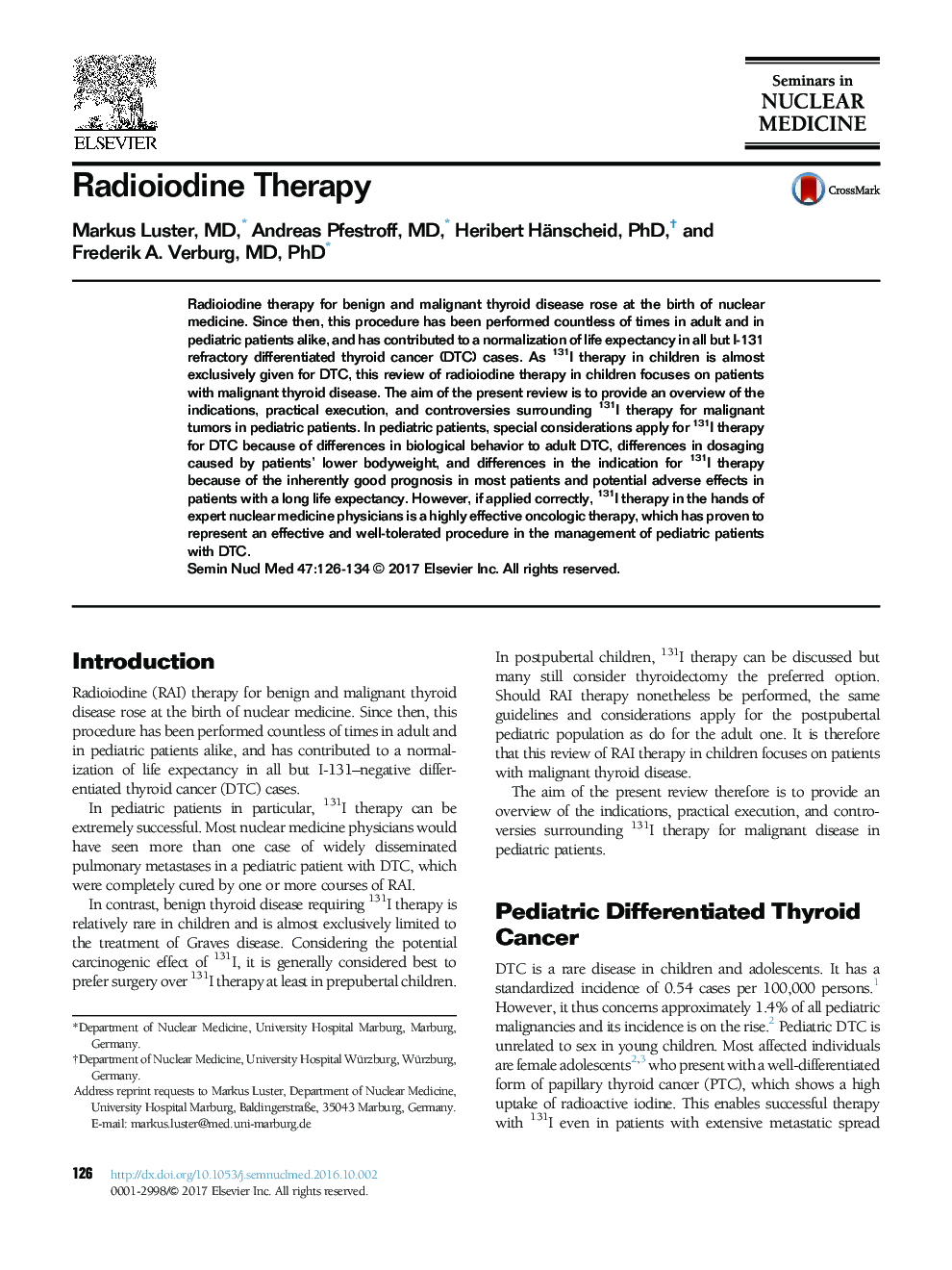| Article ID | Journal | Published Year | Pages | File Type |
|---|---|---|---|---|
| 5728342 | Seminars in Nuclear Medicine | 2017 | 9 Pages |
Radioiodine therapy for benign and malignant thyroid disease rose at the birth of nuclear medicine. Since then, this procedure has been performed countless of times in adult and in pediatric patients alike, and has contributed to a normalization of life expectancy in all but I-131 refractory differentiated thyroid cancer (DTC) cases. As 131I therapy in children is almost exclusively given for DTC, this review of radioiodine therapy in children focuses on patients with malignant thyroid disease. The aim of the present review is to provide an overview of the indications, practical execution, and controversies surrounding 131I therapy for malignant tumors in pediatric patients. In pediatric patients, special considerations apply for 131I therapy for DTC because of differences in biological behavior to adult DTC, differences in dosaging caused by patients' lower bodyweight, and differences in the indication for 131I therapy because of the inherently good prognosis in most patients and potential adverse effects in patients with a long life expectancy. However, if applied correctly, 131I therapy in the hands of expert nuclear medicine physicians is a highly effective oncologic therapy, which has proven to represent an effective and well-tolerated procedure in the management of pediatric patients with DTC.
